Chinese social media users have been hitting out at the country's elite athletes for failing to win enough gold medals, three days into the 2024 Olympic Games in Paris.
China stood third in the overall medals tables on Tuesday, behind Japan and France, according to the medals rankings at 1300 GMT on July 30.
But gold medal swimming hopeful Zhang Yufei failed to deliver in the women's 100-meter butterfly, winding up with bronze, while swimming star Qin Haiyang came in seventh in his race.
"I'm pretty happy that I managed to get bronze, because I felt my time was pretty slow," Zhang told state broadcaster CGTN after losing gold and silver to Tori Husk and Gretchen Walsh of the United States respectively.
"In the Olympics .. hard work doesn't always guarantee you will get [gold]."
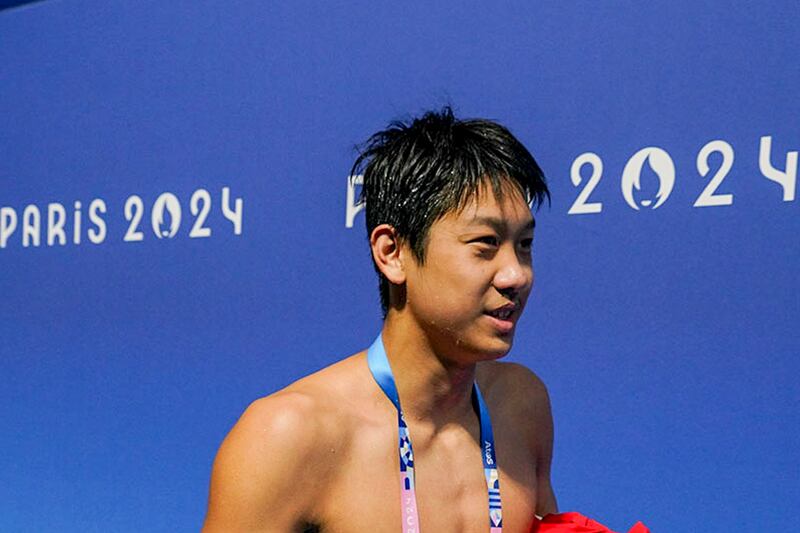
Her down-to-earth tone was unusual in a country that only wants to see its team win gold, typically dismissing silver or bronze medals as not worthy of praise or glory, according to commentators.
The online criticism could also be an outlet for public anger over the ongoing economic downturn and widespread unemployment, they said.
The early results sparked widespread criticism on social media, where some blamed an intensive drugs-testing program for interfering with swimmers' focus and performance.
Doping tests
China's swimmers have been subjected to dozens of random drug tests in the space of just 10 days, according to the team's nutritionist.
Former diving gold medalist Gao Min posted to her Weibo account that Qin's result was "the worst in any competition over the past two years."
"There must be something wrong with the athletes' pre-competition training," Gao wrote. "I personally think that seven doping tests a day have successfully interfered with our Chinese swimming team's performance."
Her post was widely reposted on Weibo, and came after team nutritionist Yu Liang posted two weeks ago to report that 31 Chinese swimmers had been subjected to nearly 200 random doping tests over 10 days, prompting the Chinese team to complain.
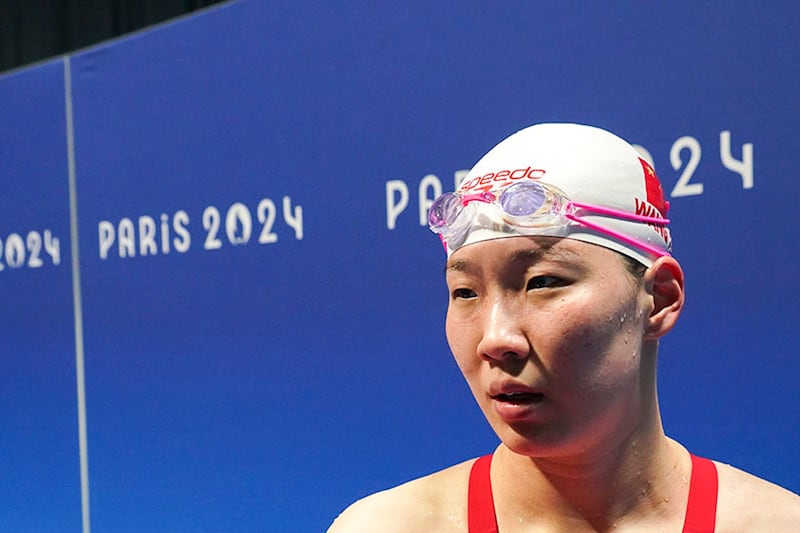
According to state-backed media The Paper, Zhang Yufei claimed that the frequent drug tests didn't affect her too much, although she felt a little annoyed to be called in for a doping test at 5.00 a.m.
Swimmer Zhang Zhanshuo declined to comment when approached by RFA Mandarin in Paris on Monday, saying only "Don't do this!"
Backstroke swimmer Wang Xue'er brushed off questions about the intensity of doping tests, saying only: "It's OK" when asked by RFA Mandarin on Monday.
Take a moment to read more
[Video explainer] Chinese athletes caught in doping scandal
[ US lawmakers allege rampant Chinese Olympics dopingOpens in new window ]
[ Chinese dissidents in exile stage sporadic Olympic rights protests in ParisOpens in new window ]
[ China's Olympic team denies issues with summer heat in ParisOpens in new window ]
[Fact Check] Did a US swimmer dodge drug tests for the Paris Olympics?
Apologies
Meanwhile, gymnast Su Weide apologized after two falls from the high bar saw the Chinese men’s team lose the top spot to the Japanese team in Monday's finals.
"Today was a very big lesson for me," Su said. "I'm sorry, I apologize to my teammates and brothers, because they worked very hard this week and through many injuries, but because of my mistakes today, we didn’t get the gold medal."
Su later turned off comments on his Weibo account.
Blogger Wanliu Chen Dasheng commented: "Do you think Su Weide even looks like a gymnast? Look at his arms? It's not so much about the gold medals now ... we don't understand how an athlete of this caliber gets to be on the national team."
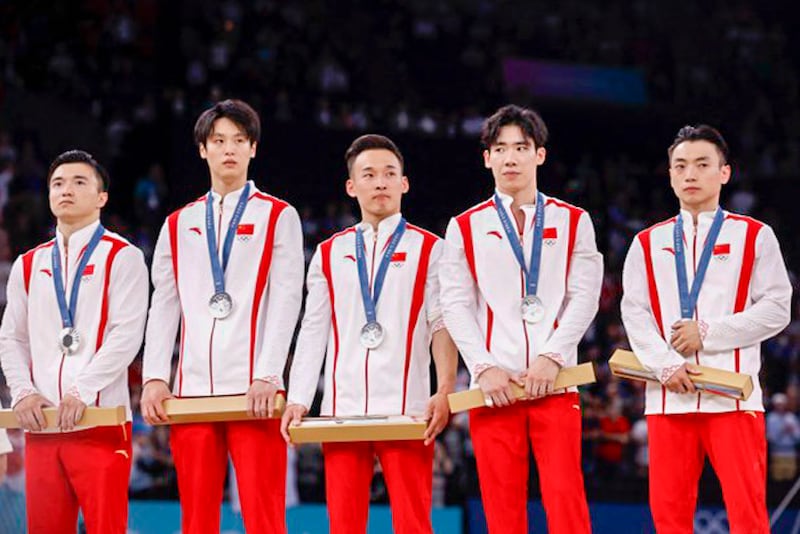
Team-mate and gold medalist Li Xiaopeng weighed in on Weibo, saying it was hard for Su, who had been brought in as a substitute at short notice, to step up.
Blogger Xu Dao Jie Xie said the loss of the gold medal was "too much," but stood up for Su. "What's more inappropriate is everyone’s hatred for Su Weide," the blogger commented.
Gymnastics gold medalist Chen Yibing also drew ire on social media for predicting gold for the Chinese team, then deleted his post, before reposting it, calling on everyone to keep cheering the Chinese team on.
Measure of national glory
Chinese sports commentator Shi Mingjin said athletes are under huge pressure at the Olympics, where gold medals are typically seen as the only desirable outcome.
"China views Olympic medals as reflecting on the glory of the entire country, so they have pretty strong feelings about this," he told RFA Mandarin in an interview on Monday.
"But if you win a silver medal for France, nobody will say you let the side down -- it's not the same kind of atmosphere."
Political commentator Cai Shenkun said sports and politics are closely intertwined in China, where the ruling Chinese Communist Party sees gold medals as a form of political endorsement.
"Sports should be sports and politics should be politics, but China links the two very closely," Cai said. "That's why [its athletes] can't afford to lose."
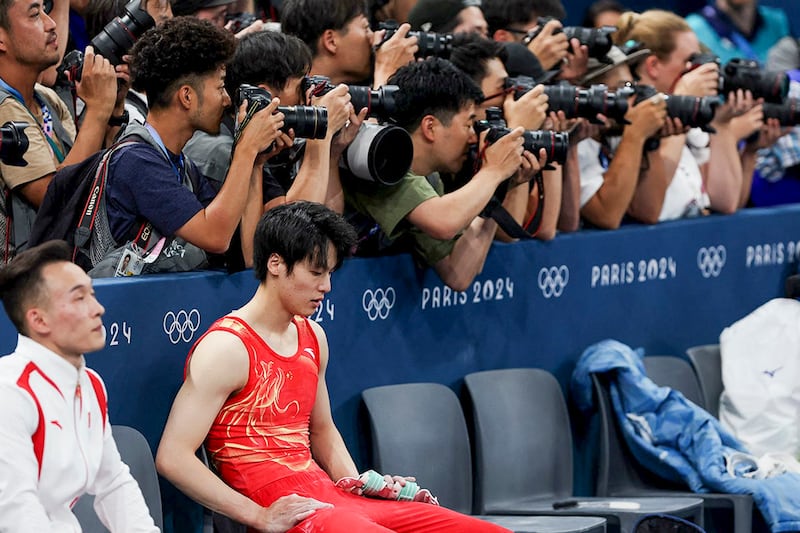
Current affairs commentator Ji Feng said the attitude is a legacy of years of "patriotic education" in Chinese schools, and this Olympics comes at a time when the government is hoping for good news to distract people from the flagging economy and widespread unemployment.
"This is what the propaganda department wants, to divert people's attention from domestic frictions," Ji said. "The economy is in decline, with so many people unemployed, so many hotels shutting down, and now they want to delay retirement."
Ji said people are being allowed to attack the country's athletes as part of "public opinion management" by the ruling party's propaganda arm.
"They need an outlet for these public grievances, and they can criticize athletes instead of the party Central Committee," he said. "It doesn't cost them anything to transfer that sense of public anger to an athlete."
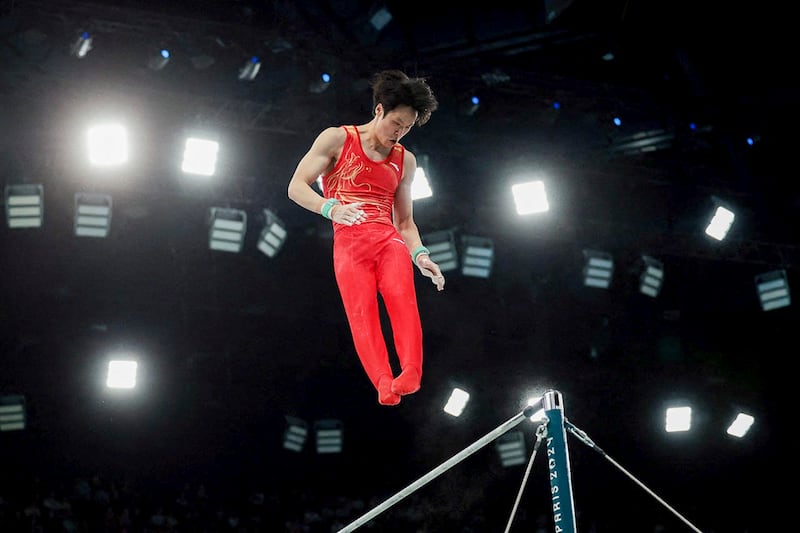
Translated by Luisetta Mudie.
